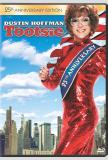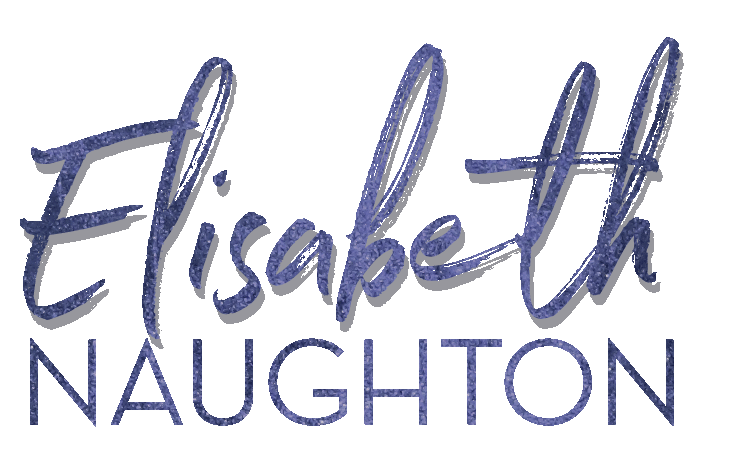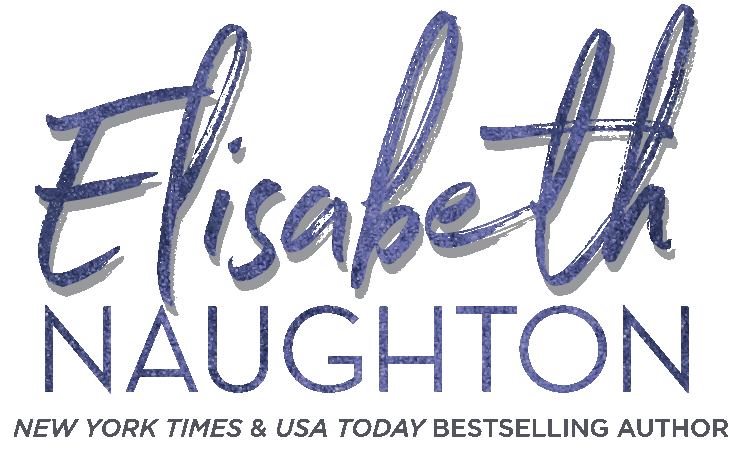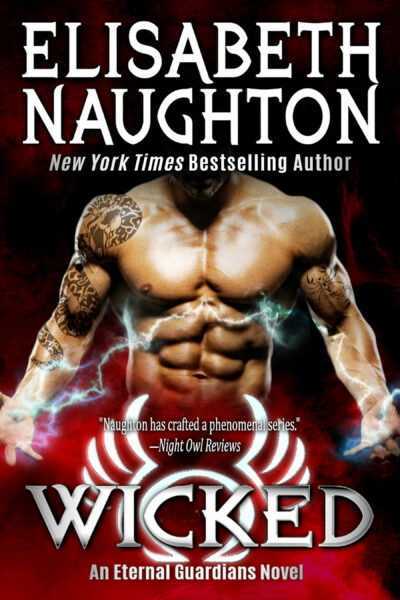
To learn more about Jessica, visit her at the following locations:
Facebook: Jessica Darago
Twitter: justjayj
Blog: justjayj.livejournal.com
In addition to finaling in the GH Historical Category for 2010, Jessica’s manuscript, The Serpent’s Tooth, was a finalist in the 2007 Launching a Star, 2007 Gotcha, and 2008 Heart to Heart contests and made it to the fourth round of American Title V in 2008–2009:
Reba MacKenzie is returning to her native Scotland for one reason and one reason only: for the the formal doctor’s education that no school in America will give her. She has no time and no interest in the glittering parties, Byzantine rules, and mad husband hunting of her chaperons’ high society. And even if she did, she would not spare a second on the handsome and persistent scion of the hated Clan MacDonnell, whose father sent her parents to their death almost 20 years before.
When Nathan MacDonnell, Viscount Skye, stole a kiss by moonlight from the pretty and pugnacious American girl he met on the Atlantic crossing, he knew her heart would be hard to ensnare — but never had a hunt seemed so worth the quarry. Besides, the longer he dallies with the maddening Miss MacKenzie, the longer he avoids reunion with his wicked father. And perhaps if Nate can make some restitution for his father’s crimes, then Reba will forgive him when she learns about his own.
And now a little about Jessica:
1) How long have you been writing?
I’ve been dabbling in lots of different kinds of writing — novels, short stories, screenplays, nonfiction — for as long as I can remember. While I was studying for my masters in English, I took as many electives in creative writing as my schedule would allow. But I only started seriously pursuing a career in romance fiction about 5 years ago, and I joined RWA and Washington Romance Writers shortly thereafter.
2) Did you always want to be an author or is this something you fell into later in life?
I can’t remember a time when I wasn’t making up stories, and I only vaguely recall a time before I realized I could make them into books. It took me a long time and a few false starts to come around to the idea that professional fiction writing wasn’t a pie-in-the-sky dream but a realistic goal.
3) What do you do in your “other” life? (Day job, family, etc.)
I’m a writer and copy editor (and unofficial Microsoft Word wrangler/InDesign template ninja) for an educational publisher that makes college courses on DVD. I specialize in history, especially ancient and medieval history, but I’ve worked on courses in subjects as diverse as theoretical mathematics, linguistics, archeology, quantum mechanics, and enology. In short, I learn for a living. If professional novelist is my dream job, my day job comes in a very, very close second.
4) Who are your favorite authors?
I think I write historical romance because of my favorite authors of my pre-teen and teen years, women who wrote sweeping, gothic historicals like M. M. Kaye, Anya Seton, and Mary Stewart. Among contemporary romance writers, I’ve most recently fallen in love with Tessa Dare and Sherry Thomas, and I’d really like to be Eloisa James when I grow up. Outside the romance genre, I have a taste for dark fantasy and light science fiction, particularly Neil Gaiman, Connie Willis, the late, great Douglas Adams, and my most recent obsession, Naomi Novik.
5) Do you have an agent?
Not yet, but I’m steadily querying and have gotten several nibbles.
6) Where do you see yourself in five years?
I don’t tend to think in terms of time, only in terms of projects. I can say that the past five or so years have been the best writing years of my life, and I’d be perfectly happy with five more of the same. In terms of projects, I’ve go the two sequels to The Serpent’s Tooth underway, a historical suspense novella to revise, and several more surprising projects lined up behind them. Whatever the next-half decade brings, I’m looking forward to it.
And now, in Jessica’s own words…
The Worst Possible Way
I have, among my beta readers and critique partners, a reputation for cruelty — not to them, but to my unfortunate characters. The first time someone reads one of my stories, it comes as a bit of a shock. After all, I’m the lady who hand-knits most of her Christmas gifts, who has a Facebook page for one of her stuffed animals, and who never, ever says no when someone asks to be picked up from the airport. But on paper? Just be glad you don’t live in my version of the 19th century. (Or any century, for that matter.)
It’s not that I enjoy doing it. As a matter of fact, the shortest chapter in The Serpent’s Tooth took me the longest to write, because it contains the ugly death of two characters whom my heroine loves very much. To this day, I can’t even think about that plot point without cringing. So why did I do it? Couldn’t the plot have worked without it? Maybe. But I don’t think so. Because to move your characters, to move your readers, you have to make it hurt.
My favorite way to accomplish this is what media critic Jacob Clifton once described as “Everything you ever wanted, in the worst possible way.” Specifically, this means exploiting a plot’s potential for irony to its utmost. Every writer uses irony from time to time: The heroine slips into another room to avoid the hero…only to find it’s the hero’s destination too. The heroine finally finds that perfect knock-‘em-dead dress for the big party…and when she arrives, half the women there are also wearing it. Such scenes are common in all of fiction, and they run the gamut from funny to tragic, but that’s incidental irony, irony on the small scale.
 Dramatic irony (the name applies whether it’s drama or comedy) is a force that moves an entire plot. It’s an external conflict or motivation, but — here’s the important bit — it pushes the protagonist in the exact opposite direction of his or her internal one. Some of the greatest plots in history hinge on this sort of irony, from the comic (“In vain I have struggled. It will not do. My feelings will not be repressed. You must allow me to tell you how ardently I admire and love you.”) to the tragic (“My only love, sprung from my only hate.”), and it can be an incredibly powerful way to plot especially when you use it not as a single plot point but as a series.
Dramatic irony (the name applies whether it’s drama or comedy) is a force that moves an entire plot. It’s an external conflict or motivation, but — here’s the important bit — it pushes the protagonist in the exact opposite direction of his or her internal one. Some of the greatest plots in history hinge on this sort of irony, from the comic (“In vain I have struggled. It will not do. My feelings will not be repressed. You must allow me to tell you how ardently I admire and love you.”) to the tragic (“My only love, sprung from my only hate.”), and it can be an incredibly powerful way to plot especially when you use it not as a single plot point but as a series.
How does that work, exactly? Let’s say, for example, that you’re writing a story about a struggling actor who has to choose between hard-earned success and the chance for true love. We’re romance writers, not authors of po-mo lit’rachur. We know which one he’ll choose. But how do we make it as difficult as possible for him to get there? In stages.
1. Michael meets Julie at work and is instantly smitten, but the part he plays guarantees she’d never be interested in him.
- Why would the part be a problem? Are they rivals for the same role? No, in the acting world, you’re usually only in competition with people of the same gender.
- Maybe everyone thinks he is a woman, and he’ll lose his job if anyone finds out he’s a man.
- Maybe it’s not just one job. Maybe he’ll have to pretend to be a woman for the rest of his foreseeable career.
- And if he can, somehow, manage to meet Julie as a man, what if she falls for him?
- Worse yet, what if she hates him?
So Michael’s stuck as a woman, but he’s a good enough actor to pull it off, isn’t he?
- What about the rest of his life? What about his friends and colleagues who know Michael doesn’t have a job? What would happen if someone found out?
- Would that someone expose him on purpose? If so, why?
- Hey, there’s that rivalry thing we abandoned earlier! Maybe one of his female friends was also up for the part.
- Maybe it’s a female friend with an unrequited crush on Michael…and more than a little tendency for vengeance
- What if Michael is too good an actor?
- What if one of his male castmates falls in love with him?
- What if Julie’s father falls in love with him?
- What if it’s both?
Notice how the closer Michael gets to his material goal — professional success, financial security, pulling off most challenging role of a lifetime — the further he gets from Julie. And if he even takes one single step toward Julie, it could sound the death knell of the career he’s always dreamed of. Every relationship he has with every character presents him with the same impossible choice — and the result is one of the funniest films of all time.
So how does this work in a drama? For one thing, it’s often best to use a lighter hand, lest drama become melodrama. (Not that a little melodrama isn’t great entertainment sometimes.) When it came to writing The Serpent’s Tooth, I started with one of the oldest irony tropes in the book: a Romeo and Juliet pair of protagonists. I gave each of them a personal goal that was in direct conflict with their romantic attraction: Reba’s family honor, Nate’s childhood secrets. The harder Reba tries to salvage her plans, the more her world crumbles, with Nate as her only refuge. The faster Nate runs toward Reba, the closer he comes to revealing his sins and losing her forever.
So that’s my plotting secret: I put myself right there in the character’s shoes. I think about what she wants, what she fears, and I ask myself, “What could possibly go wrong?”
What tools do you use when you need to do something horrible — or horribly funny — to your characters?









July 13th, 2010 at 11:38 am · Link
Oh, I love the process of “what could possibly go wrong?” Implementing it effectively in a story can be tricky, but the initial brainstorming process is great fun.
Your day job sounds wonderful! What a great way to keep the creative juices flowing when you’re away from the work.
July 13th, 2010 at 12:49 pm · Link
Oh, that’s a great way to lay out the central conflict, Jessica: ” I gave each of them a personal goal that was in direct conflict with their romantic attraction.”
And your blurb sounds awesome! Are you going to be in Orlando for Nationals?
July 13th, 2010 at 12:52 pm · Link
Jessica,
Ms. Mackenzie sounds like an engaging heroine. I hope to see The Serpent’s Tooth on a bookshelf someday!
July 13th, 2010 at 1:15 pm · Link
Excellent tips, Jessica! I’m going to print them out and tuck them into my notebook for story reference – thanks! (and lemme just say, two thumbs way up on Connie Willis and Namoi Novick. You have great taste
July 13th, 2010 at 1:19 pm · Link
Jessica,
Awesome post. Ummmm, we need to talk sometime. Right now, I just see what comes out of my brain. I don’t use just anything, I make sure the action agrees with the character’s personality. But, that’s about it.
And I did not know you had a Facebook page for one of your stuffed animals.
Looking forward to see you at Nationals.
Abbi 🙂
July 13th, 2010 at 1:44 pm · Link
Hi Jessica!
I’m in major rewrite mode with my GH entry (sigh) and just got a booster shot of clarity from creating my “elevator pitch.” Early in the plot my hero betrays the trust of his heroine and must work h-a-r-d to make amends. Looking through the lens you’ve provided is going to make it easier, I think, to ratchet up the tension and the missteps he takes on the road to forgiveness. Thank you, thank you!
So…are you interested in taking someone TO the airport? Heh, heh, just asking!
July 13th, 2010 at 1:51 pm · Link
Great post, Jessica!
I soooo don’t ever want to meet you on a blank page. I wouldn’t stand a chance agin ya. LOL!
Hope to meet you in Orlando!
L.
July 13th, 2010 at 2:04 pm · Link
Gillian – It really is a fantastic job. Right now, we’re in a special project crunch and the hours are killing me, but then there are moments where my colleagues and I stand around making raunchy yet scholarly Alexander the Great jokes, and it all seems worthwhile.
Elisa – Thanks! And I will be at Nationals. I can’t wait to meet everyone!
Mary – Thank you!
Jen – Same to you! (Novik is going to be at my local Borders tomorrow night. I’m going to listen to her read from the new book, even though I’m only up to Empire of Ivory.)
Abbi – The lion not only has a Facebook page, he has a tux for Nationals. He’s very excited to meet you and hopes you
taste delicioushit it off.Keely – Glad it was useful! I’m pretty darn good at getting my characters into messes, I think. Getting them out again is a bigger problem. And as for the question, I believe in airport karma. If you give rides, rides will come to you. But for Orlando, I’m stuck on the shuttle with everyone else. 🙂
Lynda – I’m harmless, I swear! :bats eyelashes: Looking forward to meeting you, too!
July 13th, 2010 at 3:00 pm · Link
Jessica,
I loved your post. Like everyone so far, I would love to remember to implement those wonderful concepts. I’m another who often feels like pulling a plot from my brain is torturous work and comes out contrived. Emotions-yes; inner conflict-no problem; driving issues? Difficult. I, too,will print out your blog and use it!
Can’t wait to meet you in Orlando.
July 13th, 2010 at 5:11 pm · Link
Jessica, your story blurb gave me goosebumps! I can’t wait to read it!
I like what you said about their external arc opposing their internal one. That’s the sort of thing I need to keep reminding myself of as I write. The advice I always keep foremost in my mind as I’m working on a story comes from Michael Hague. He said to complete this sentence, as your character: “I will do anything for (insert goal here). Just don’t ask me to do (thing the character is most afraid of). It’s just not me.”
Then, he said, make them do exactly that to reach their goal.
July 14th, 2010 at 12:03 am · Link
Great post, Jessica! It really reminded me that I need to be more deliberate with each and every plot point to take it to the next level of heck 🙂
Your story sounds terribly interesting! Can’t wait to read it…see you in Orlando.
July 14th, 2010 at 5:20 am · Link
I love the Donald Maass way of making a character do the one thing they would never ever do. If i ever get stuck, i just pick up one of his books 🙂
I love your ‘everything you wanted in the worst possible way’. Great stuff!